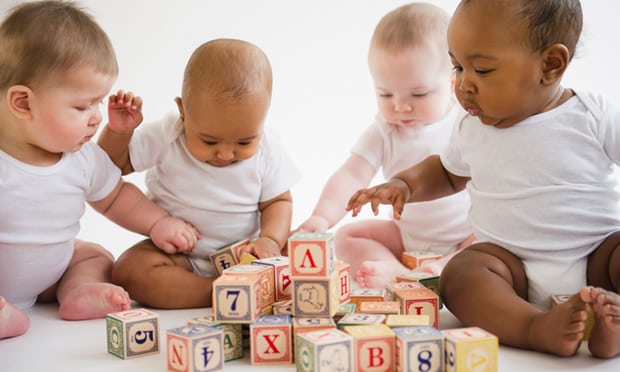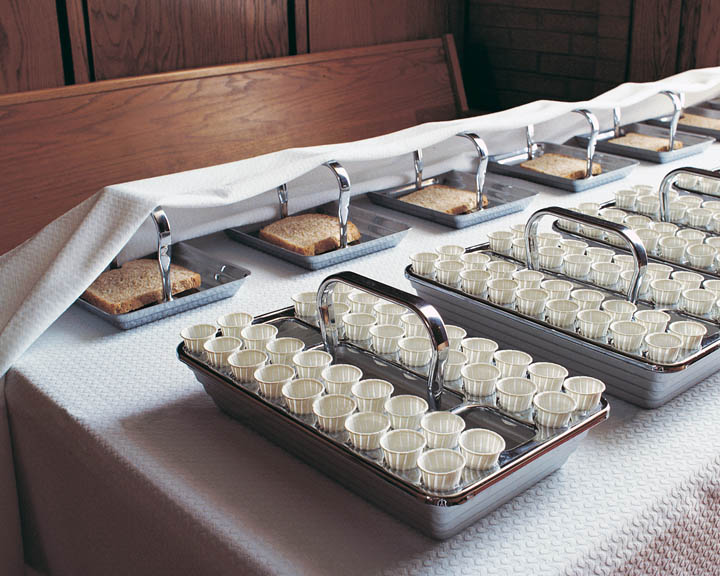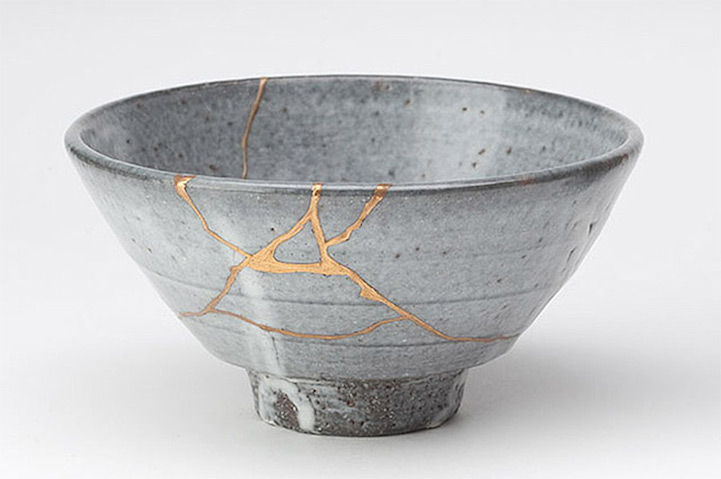Perfectly Failing at Life
As humans, we crave success. But not just any success. Perfect success. Perfect success in our homes, our relationships, our careers. So we strive, we climb and we reach for the stars. And look at all that we have achieved as humanity!
Pyramids, spaceships, handheld computers, extreme sports; in everything we increasingly become better.
But when we believe that success is achieved without failure, that is exactly when everything crashes and burns.
Don’t Mess Up What Matters Most
In general, it seems that we understand what carries the most weight in this life. Although perfecting our Instagram photos is for some, a daily endeavor, most of us realize that real joy lies in a spouse, a family, ourselves and a successful career to carry that which we hold most dear.
But much like a wary perfectionist working on an art project, we, as artists of our lives, are careful to “bump” or “not touch anything” and especially not to “mess it up.” We become hyper-vigilant of our actions and the results that follow from any small gesture.

In some cases, this kind of caution does much good to prevent us from falling into further danger in our lives. However, when we hope this caution will prevent all mistakes in the tapestry of our lives, then we, in fact, are mistaken.
“Mistakes are a fact of life. Learning to skillfully play the piano is essentially impossible without making thousands of mistakes—maybe even a million. To learn a foreign language, one must face the embarrassment of making thousands of mistakes—maybe even a million. Even the world’s greatest athletes never stop making mistakes.”
When it comes to finding a spouse, raising children, and building a career, well, we would be wise to notice that all these words involve a progressive verb. Finding. Raising. Building. It’s a process.
And within that process, hearts will be broken, tears will be shed, motivation will be exhausted and mistakes will be made.
Failing is not final. Rather it is necessary for ultimate, lasting success.
Yet without failure and imperfections, we may actually be causing more damage to ourselves and those around us.
Here we will discuss a few examples of where failure and imperfections are more useful than not.
Cleanliness Is Next To Godliness, Antiseptic Boxes Are Not
A form of this hazardous belief in perfection without failure is found in the constant care for cleanliness to produce good health. A desire for good health is a worthy endeavor; however, infection-free environments may not be the solution.
For example, for almost 300 years, millions of people have received injections of bacteria in the hope that bacteria taken in small measures will help the body learn to fight the infection while it’s in a weak state. Then when the big infection comes around, the body has already learned what to do and how to withstand debilitating illness.
And many have been able to survive epidemics untouched by severe sickness.
Thus bacteria, although harmful, taken in small measures, may help rather than hurt.

More recent studies have shown that babies who don’t encounter infection within the first year of their lives are more likely to develop the most common form of childhood cancer.
Researchers actually recommended bringing children into public spaces, such as daycares, to allow children opportunity to encounter infection. So living inside an antiseptic box isn’t the way to go with children.
Humans have three types of immunity—innate, adaptive, and passive. Innate immunity comes naturally and in many instances can help us avoid sicknesses. However innate immunity cannot keep us safe alone.
Our adaptive immunity builds and grows stronger the more it encounters infection, in some cases, succumbs to it, and then learns how to fight it.
Thus as the body rises and falls in health in small sicknesses, it actually strengthens the body against more detrimental and harder to overcome sicknesses.
Some failure in health helps the body, it doesn’t hurt it.
Dating Involves Bruises, Unlike Fruit Picking
Another example. With the explosion of dating apps, the accessibility to a bigger variety of men and women to date has increased drastically. In many circumstances, this can be a blessing for those who struggle to meet new people due to their environment or social anxieties.
However, for the rest of the general population, Tinder and other dating websites have only heightened the search for perfection in a partner.
Another face, another profile, another option. Gone are the days of deep conversation and courtship. Now one blemish, one stain, one defect, and boom. Another person “ghosted.”

Once a person finds something that they don’t like in the other, they are quick to move on to the next one, giving little thought to “another chance” or waiting to see more.
Rather than recognizing that each human soul bears years of experience and thought filled with both good and evil, there seems to be a fruit picking form of dating.
When fruit picking, each fruit is given a quick glance, scanning for blemishes and if all is well, a bite is taken. But if there is at any moment a sense of displeasure or boredom, the fruit is tossed aside and left to rot.
Humans are not fruit. A single defect does not ruin the entire entity a human being encompasses. Unlike anything else in this world, humans are complex creatures, continually changing and becoming, filled with both sorrow and joy, beauty and homeliness.
“In God’s plan of happiness, we are not so much looking for someone perfect but for a person with whom, throughout a lifetime, we can join efforts to create a loving, lasting, and more perfect relationship. That is the goal” (Elder Dieter F. Uchtdorf).
Dating, although true that it is a serious pursuit of the partner one will spend an eternity with, does not mean that we seek a perfect individual or even an individual untainted by life.
Marriage is a partnership of growth and hard work. Thus to choose someone who knows and understands the work required to get up after falling—this is a person worth pursuing.
A bruised partner may be much better than a bruised fruit because they bear the marks that show time, experience, and growth. These are things that matter more in a marriage than “perfection.”
Falling early on in life as an individual can help a family later on fall with more grace, strength, and endurance.
Bruised, Broken, Torn for Us
Finally, throughout history, storytellers and writers alike have conjured these immaculate gods, complete with bulging muscles, unnatural powers, and of course, legacies of victory.
Zeus, King Arthur, Sherlock Holmes, Odysseus; all examples of heroes who overcame so many near-death experiences and stood triumphant over all. These are the gods of men. Gods who never fail, who are never weak, and who are loved by all.
But this is not a true god. This is not The True and Living God.
No, rather, He was “despised and rejected of men; a man of sorrows and acquainted with grief.” He was “brought as a lamb to the slaughter and as a sheep before her shearers is dumb” (Isaiah 53:3,7).
This is the man who would stumble and fall bearing a cross of wood. The man who was beaten with a whip and condemned to die. This is our God.
 Because had He not been mocked and rejected, He could never understand us, when we are rejected and forgotten. Had He not subjected himself to suffer, he couldn’t have “borne our griefs and carried our sorrows” (Isaiah 53:4) Had He not died, we never would be able to rise again. Because “with His stripes, we are healed” (Isaiah 53:5).
Because had He not been mocked and rejected, He could never understand us, when we are rejected and forgotten. Had He not subjected himself to suffer, he couldn’t have “borne our griefs and carried our sorrows” (Isaiah 53:4) Had He not died, we never would be able to rise again. Because “with His stripes, we are healed” (Isaiah 53:5).
Having been a God who breaks and falls and tears, he is able to break the bands of death and tear us free from sin.
Having been broken, we can receive His broken pieces and become whole. Piece by piece we can receive the image of Christ into our countenances and be made alive again.
Failing Perfectly With Christ
But herein lies the lesson. Just as He was broken for us, so must we be broken to receive Him. For this reason, He asks for a broken heart, so that through His grace, we might be put back together, made whole through His perfection.
We came here to this earth, to fall and rise, learn good from evil, and to choose Jesus Christ and return to live with Him and our Heavenly Father again.
 This is the way we perfectly fail. We get up with His help. And we trust, going forward that “by his grace [we] may be perfect in Christ” (Moroni 10:32).
This is the way we perfectly fail. We get up with His help. And we trust, going forward that “by his grace [we] may be perfect in Christ” (Moroni 10:32).
Much like the ancient Kintsugi art of Japan, where the acceptance of change and the practice of finding beauty in the flawed, artists would inlay gold after breaking pottery.
Christ, our gold inlay makes us whole and beautiful. But first, we must tear, break and fail. Only in failing forward do we rise upward to stand with Him.


